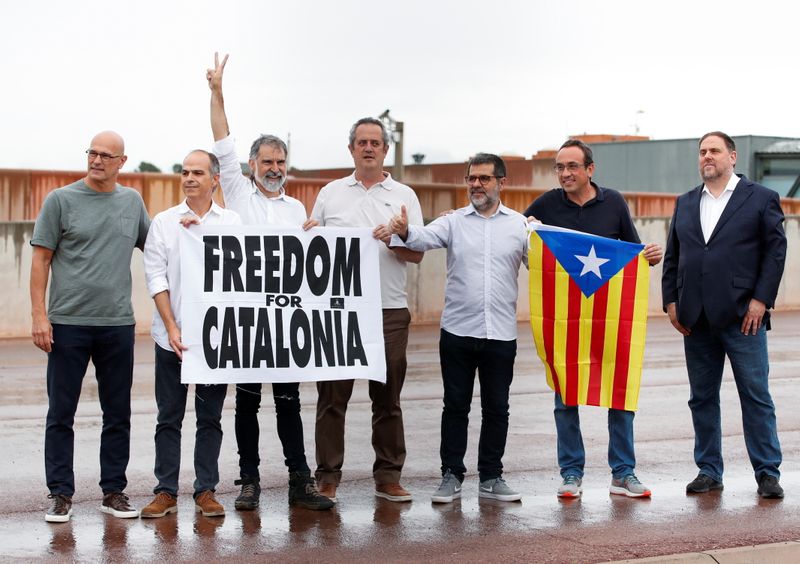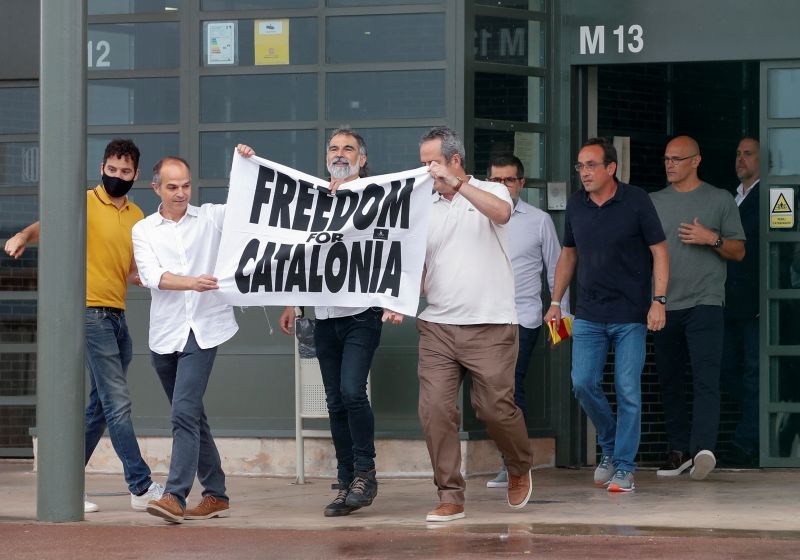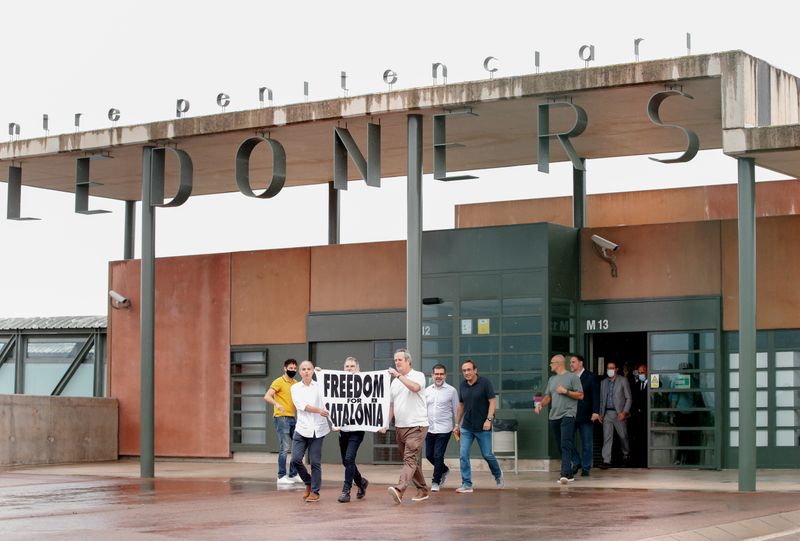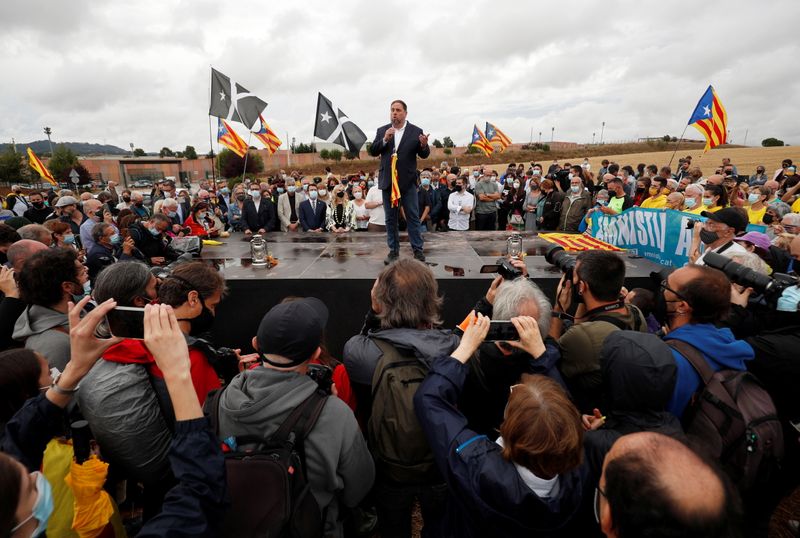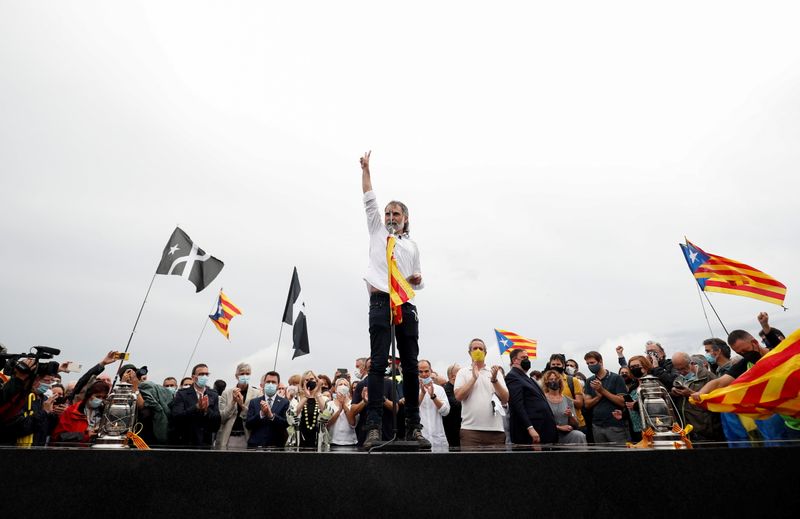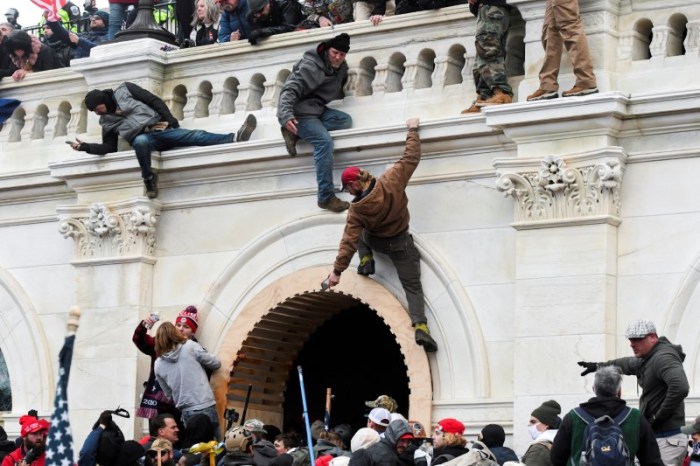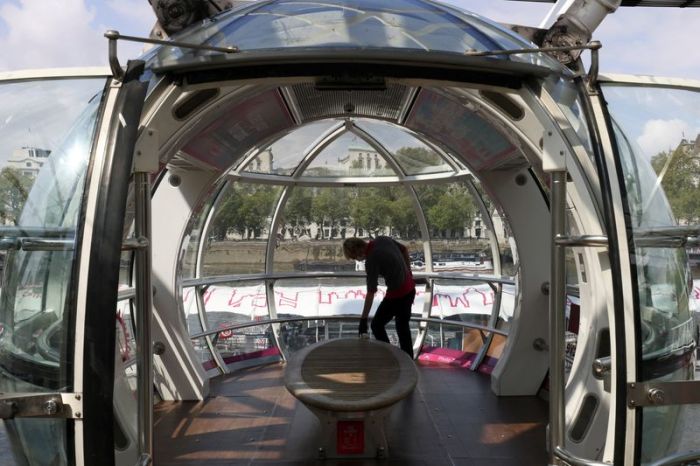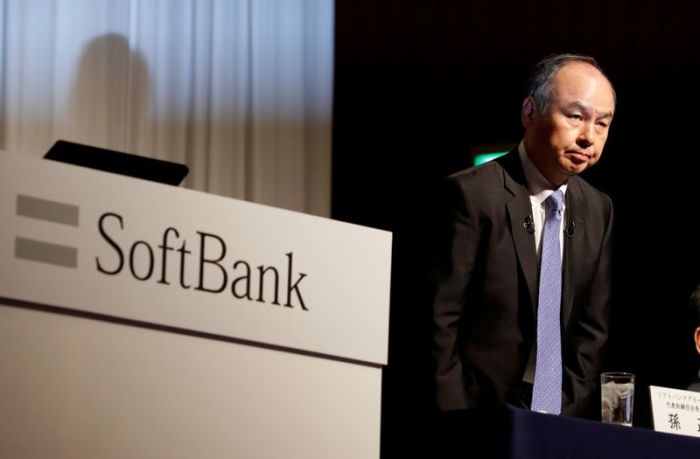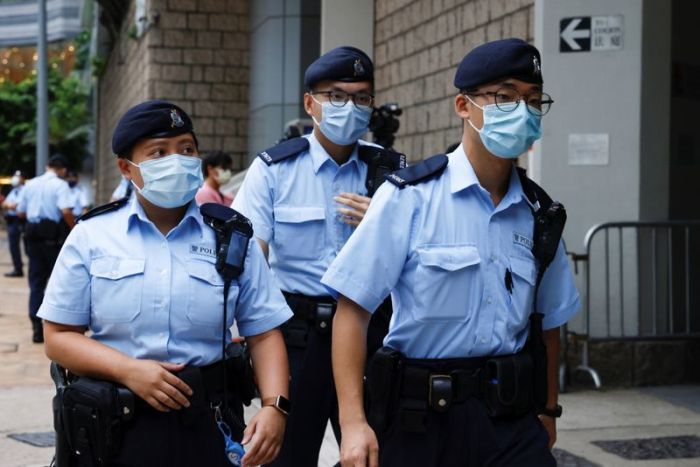SANT JOAN DE VILATORRADA, Spain (Reuters) – Nine Catalan separatist leaders walked free from prison on Wednesday and vowed to win independence from Spain, in a foretaste of the challenges facing Madrid as it prepares for talks on the region’s future.
A day after the central government granted them pardons as it seeks to curtail the separatist push through dialogue, the politicians and activists – some carrying a banner demanding “freedom for Catalonia” – said their political views were stronger than when they were first imprisoned in 2017.
“Today, as we leave jail, nothing ends. Everything continues,” Oriol Junqueras, Catalonia’s former deputy leader and the most prominent of the group, told a crowd outside the Lledoners prison, an hour north of Barcelona.
“Until victory day, we will continue working to make the dream of a Catalan republic a reality,” said Junqueras, who, with a sentence of 13 years, had been serving the longest term.
The nine pardoned leaders had been sentenced in 2019 to between nine and 13 years for sedition and misuse of public funds, after an unauthorised referendum on a breakaway that led to a short-lived declaration of independence by the northeastern region and Spain’s worst political crisis in decades.
The seven who had been held at Lledoners were greeted by the pro-independence head of the Catalan regional government, Pere Aragones, amid cheers and clapping from supporters.
None thanked the central government for their release, with some saying they would not be silenced and that there was nothing to apologise for.
Spanish Prime Minister Pedro Sanchez, who has played down the Catalan leaders’ defiance saying the government never intended to change their views with the pardons, will meet Aragones on June 29 in Madrid to kick-start negotiations on solving the political conflict.
The central government pardoned the nine in a goodwill gesture ahead of the talks, though the pardons are conditional and a ban on the leaders holding public office remains in place.
NO REFERENDUM, NO AMNESTY
Madrid has said it is convinced there will not be a new unilateral independence push and ruled out allowing a legal referendum on the matter.
“It is not just a question that it is unconstitutional, it is that we can’t keep fracturing the Catalan society,” Sanchez told parliament, answering calls from separatist legislators for another vote authorized by Madrid.
Meanwhile, conservative opposition parties have renewed their calls for Sanchez to resign over the pardons, arguing that the move undermines Spain’s unity.
Opinion polls show that close to half of Catalonia’s population favours splitting from Spain and that a majority of Spaniards oppose the pardons.
Catalan separatists are also seeking a broad amnesty for all those with outstanding legal cases related to the 2017 referendum independence bid.
“Amnesty is what we want and we will achieve it,” said former Catalan parliament speaker Carme Forcadell as she walked out of another jail in Barcelona, calling her release a “small victory” triggered by domestic and international pressure.
The government has ruled out a blanket amnesty, which would benefit around 3,000 people including politicians who fled Spain such as former Catalan regional government leader Carles Puigdemont.
“There won’t be amnesty, there won’t be self-rule, what there will be is dialogue and politics,” said Regional Policy Minister Miquel Iceta.
(Reporting by Luis Felipe Castilleja and Joan Faus, Additional reporting by Jordi Rubio, Albert Gea, Inti Landauro and Cristina Galan; Editing by Andrei Khalip and Alex Richardson)

